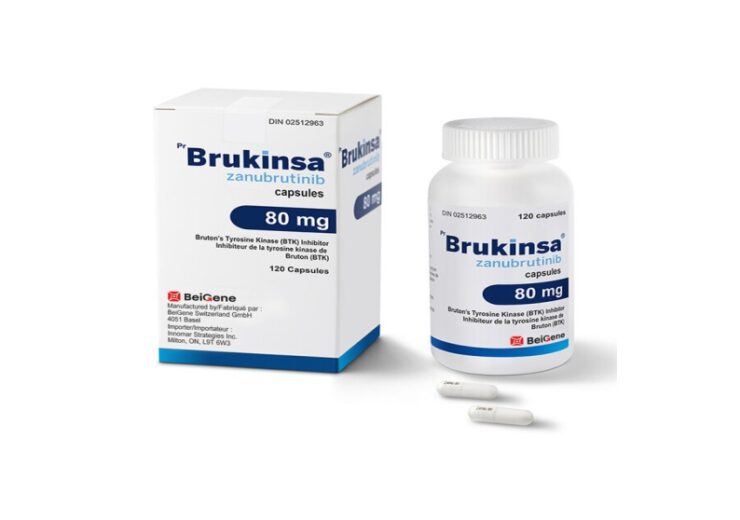The approval was based on the overall response rate (ORR) from the ROSEWOOD study in which ORR was observed at 69% in the Brukinsa plus obinutuzumab arm against 46% in the obinutuzumab group

A product shot of Brukinsa. (Credit: CNW Group/ BeiGene Canada)
BeiGene has received accelerated approval from the US Food and Drug Administration (FDA) for the combination of Brukinsa (zanubrutinib) and obinutuzumab to treat certain adult patients with relapsed or refractory (R/R) follicular lymphoma (FL).
The FDA has approved the use of the Brukinsa, obinutuzumab combination in patients subjected to two or more systemic therapy lines.
Brukinsa is a small molecule Bruton’s tyrosine kinase (BTK) inhibitor. It is intended to provide complete and sustained inhibition of the BTK protein.
Obinutuzumab, on the other hand, is an anti-CD20 monoclonal antibody.
The R/R FL application for the Brukinsa, obinutuzumab combination was previously granted fast track designation and orphan drug designation in the US.
The FDA accelerated approval in R/R FL marks the fifth indication for the BTK inhibitor in B-cell malignancies in the US.
BeiGene haematology chief medical officer Mehrdad Mobasher said: “This accelerated approval of Brukinsa represents an important advancement, offering the first and only BTK inhibitor treatment for follicular lymphoma patients in the US who have either not responded to initial therapies or have experienced relapse.
“Brukinsa is the only BTK inhibitor to date that shows efficacy with this type of malignancy and now has the broadest label, including five oncology indications, of any medication in its class globally.”
The accelerated approval was based on the overall response rate (ORR) and duration of response (DOR) from the ROSEWOOD study, as confirmed by an independent review committee (IRC).
ROSEWOOD is a global, randomised, open-label Phase 2 trial of zanubrutinib with obinutuzumab compared to obinutuzumab alone in 217 patients.
According to the results, the ORR by IRC was observed at 69% in the Brukinsa plus obinutuzumab arm against 46% in the obinutuzumab group. The median follow-up was approximately 20 months.
In addition, the responses were durable with an 18-month estimated DOR of 69% in the Brukinsa combination arm.
Overall, the combination was well tolerated, and the safety findings were in line with earlier studies on both medications.
Continued approval for the R/R FL indication might be subject to confirmation and an explanation of the clinical benefit in the ongoing confirmatory MAHOGANY trial.
Zanubrutinib is also authorised in the US to treat adult patients with Waldenström’s macroglobulinemia, mantle cell lymphoma, R/R marginal zone lymphoma, and chronic lymphocytic leukaemia.
